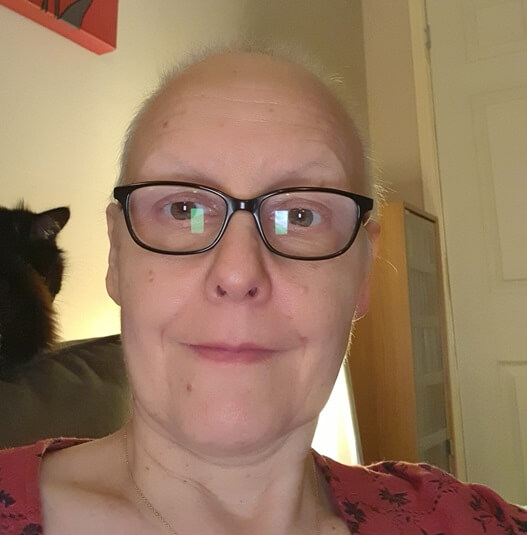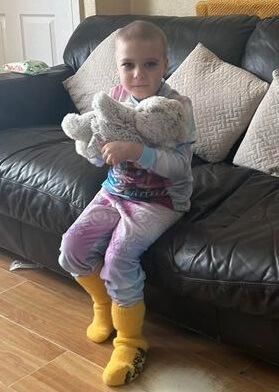
Seven years ago Sumitra was diagnosed with triple-negative breast cancer. She is now a volunteer with Cancer Support UK’s Cancer Coach programme and uses her experience to help people who have completed their physical cancer treatment. Cancer Coach support groups can help participants to challenge any negative thought patterns that can linger after treatment ends, as well as how to manage their worries.
Sumitra is also a Someone Like Me volunteer for Breast Cancer Now.
“When you are diagnosed with cancer, there is no choice, only a loss of control, where you are forced into another world – the world of cancer.
“The world of cancer consists of hospital visits, chemotherapy, statistics and doctors. It’s like being on a conveyor belt, which is taking you into a dark tunnel. When you receive your diagnosis, the normal world carries on, just as before, which doesn’t make sense to you.
“All kinds of emotions hit you, such as anger, disbelief, shock, fear, grief and sadness. Even after the treatment has ended, you are still affected.
“The impact of cancer as it enters your life is like a tsunami and can affect things such as career, children, fertility, education, health, finances and friendship.
“Life is not the same, as your body has to deal with the hard journey of chemotherapy, surgery, or radiotherapy. You can end up questioning your own identity as you also have changed. From once being a fit and healthy person, you become someone who feels like they are over 90 years of age.
“The body becomes constantly fatigued with the effects of cancer, which can last for years. Then, when you are finished, others will feel you ought to be normal, when inside you don’t feel anything like that.
“After cancer treatment has finished, you can experience post-traumatic stress disorder, which can consist of flashbacks, anxiety and difficulty sleeping. This is hard when you are trying to rebuild life after cancer.
“Your life can be completely transformed with things such as a marriage break down, other health issues and career setbacks. Or having a secondary diagnosis of the disease. The mental and emotional impact of the cancer ordeal is enormously challenging. Years can be spent picking up the pieces of your old life and trying to move on to where life is now. All the time trying to regain a sense of normality.
“After having cancer, you are seen as a strong person. However, I still don’t feel I was a strong person. I didn’t choose to have cancer. But I did choose not to let the experience of cancer define who I am now. What I learned from having cancer is to live each day as it comes. Everyone’s journey is unique and there is no normality – simply the new normal from having cancer.”
Cancer Coach is available free of charge to anyone over the age of 18 who has completed treatment for cancer, regardless of whether they finished treatment a few months ago, or a few years ago. Participants can be based anywhere in the UK.
If you are interested in finding out more about Cancer Coach, please submit an application to join a group and a member of Cancer Support UK will be in touch.



